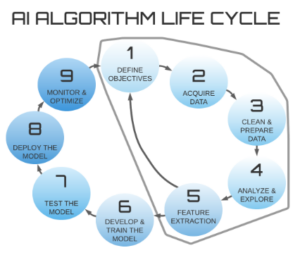Week 2: The Role of Data in AI Sports Predictions
Avaya A -
Hello everyone!
Today, I want to dive into a major part of my project – how data plays a massive role in AI sports predictions. Data powers the AI engine, and the better the data is, the more accurate the predictions would be. I’ll be providing Meta Chameleon with a set of data points to analyze and predict sports outcomes with the best possible accuracy. In this blog, I want to discuss the datasets I’m providing Meta Chameleon and why I chose these specific factors.
Sports outcomes are influenced by so many different things, and some factors can’t even be accounted for. But to try to make things as accurate as possible, I’ve focused on the crucial factors that really impact game results: team health, match history, and individual player abilities.
A team that’s at full strength has a much better chance of winning than one with injuries and fatigue, which is why team health is such an important factor to account for. In the data, I plan to keep track of any current and past injuries that could impact performance, how fatigued players might be from a packed schedule, and how often key players are rested or rotated in and out of the lineup. By analyzing these factors, the AI can estimate whether a team would be more likely to win or lose.
Past performance can tell us a lot about future success, which is why I’ll be including match history in the data. My AI model will be analyzing win-loss records, head-to-head matchups, and home vs. away performances. These will help with identifying patterns that might influence upcoming games.
Individual players’ strengths and weaknesses are also important to analyze, as key players can greatly influence the game. In the data, I will track the speed, endurance, and physical power of the key players, along with tracking how reliable a player is over multiple games, and identifying any health issues that the key players may have. By considering these attributes, the AI can look at strength, agility, consistency, and health conditions, allowing it to make the best possible prediction.
All of the steps that I plan to complete throughout this process is shown in the picture below.

By incorporating all of these factors, I hope to improve Meta Chameleon’s ability to make precise forecasts. As I continue to train and test the model, I’ll track how well these factors contribute to accurate predictions and I can improve these predictions.

Comments:
All viewpoints are welcome but profane, threatening, disrespectful, or harassing comments will not be tolerated and are subject to moderation up to, and including, full deletion.